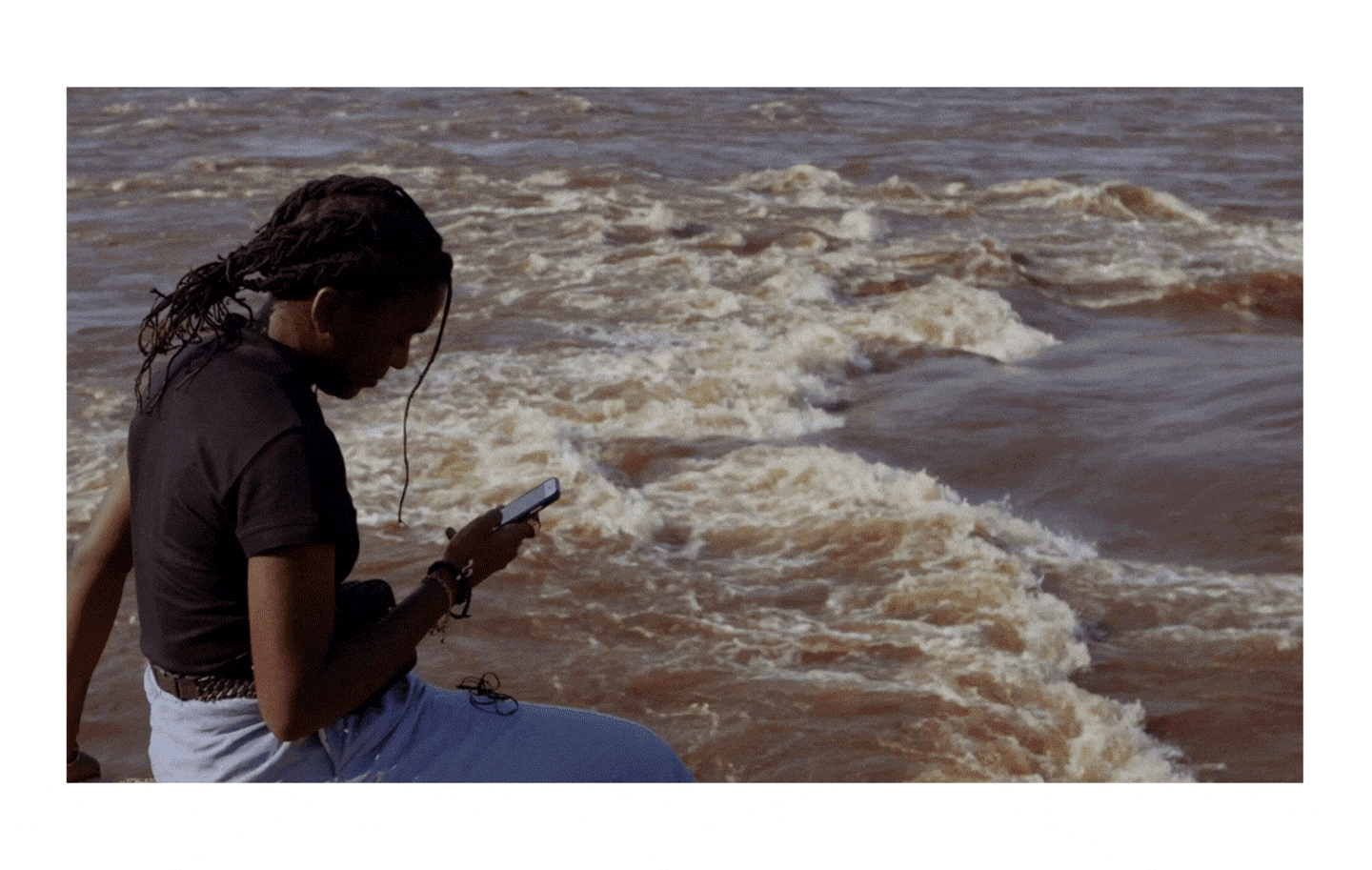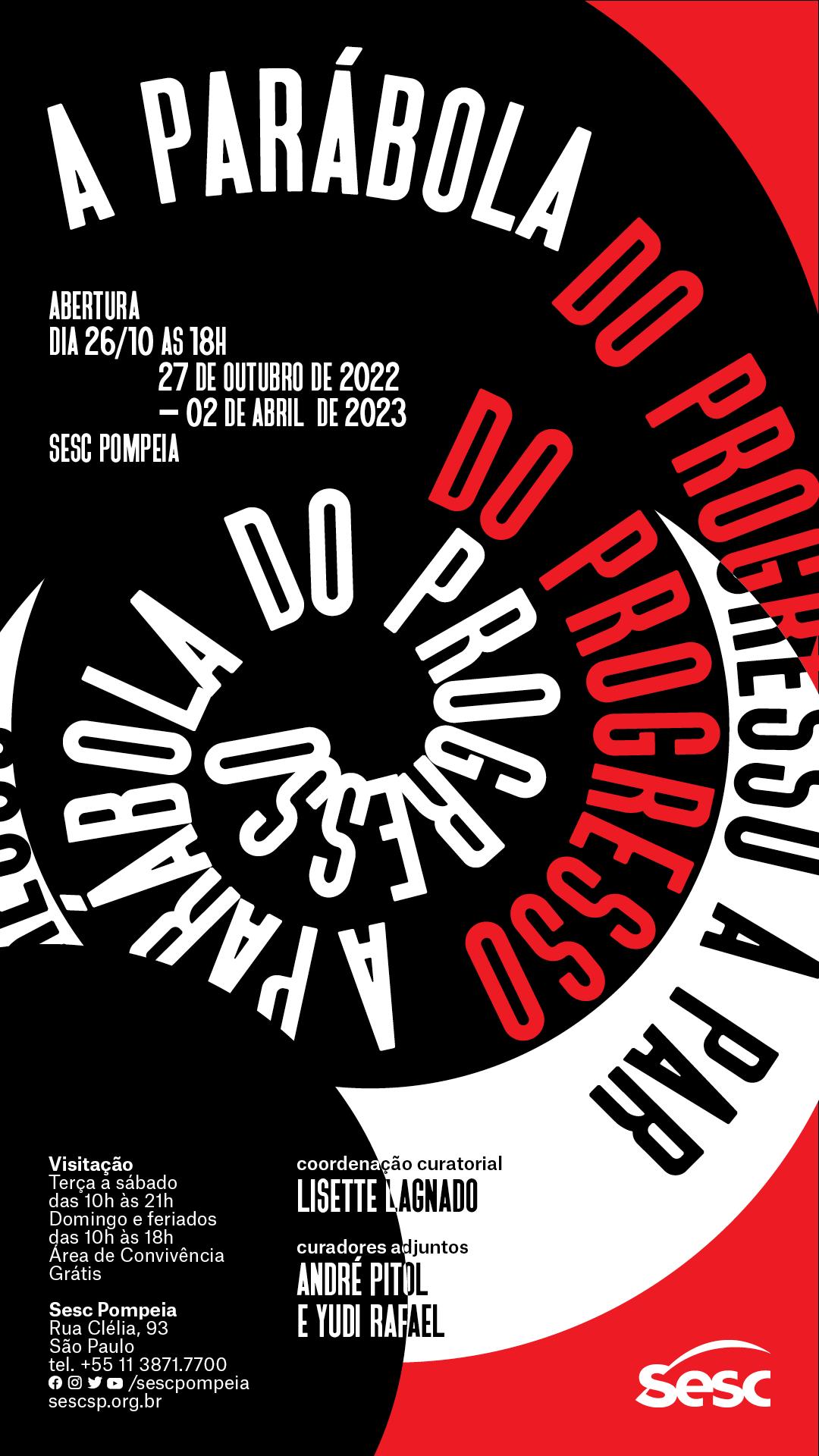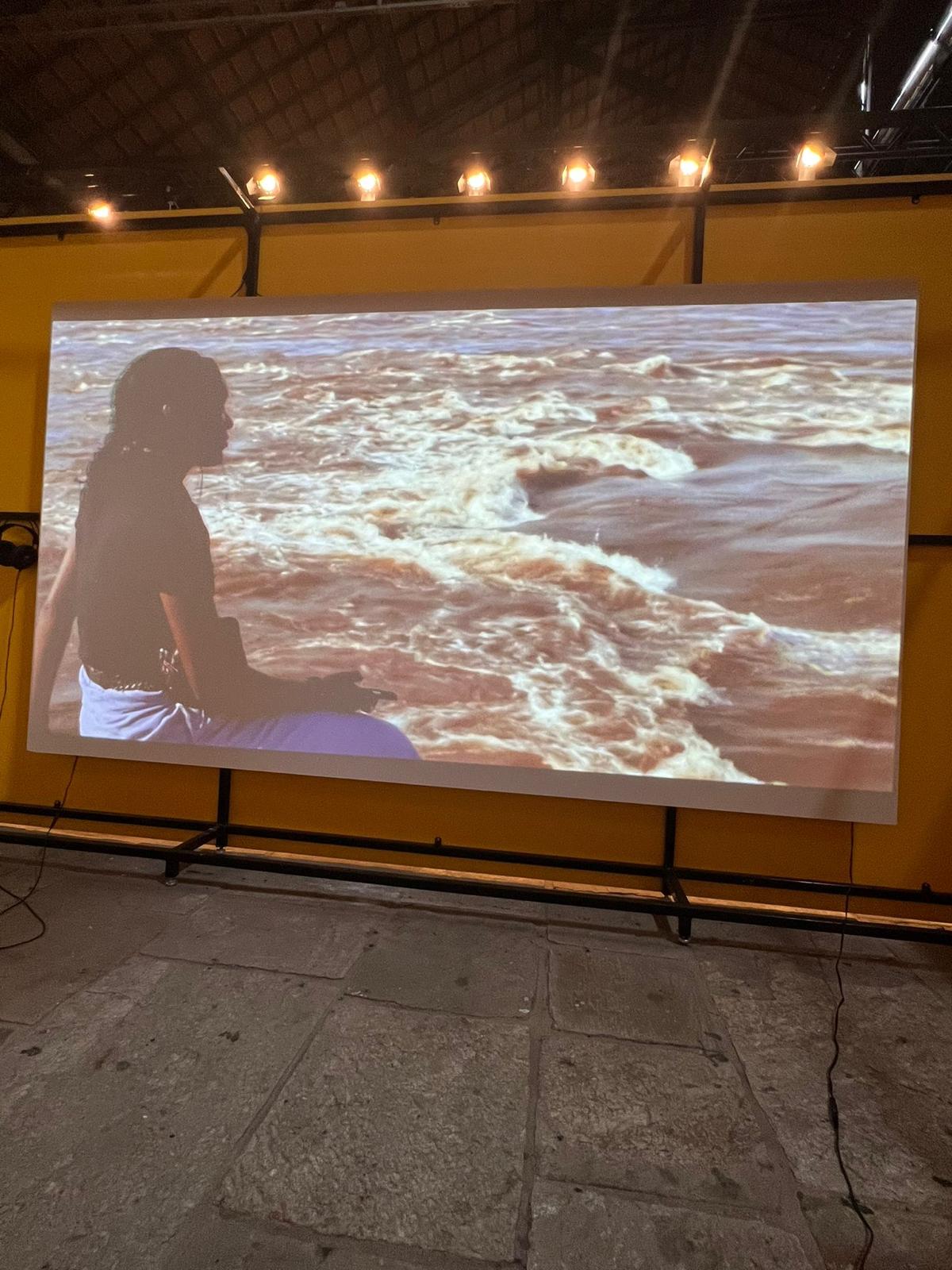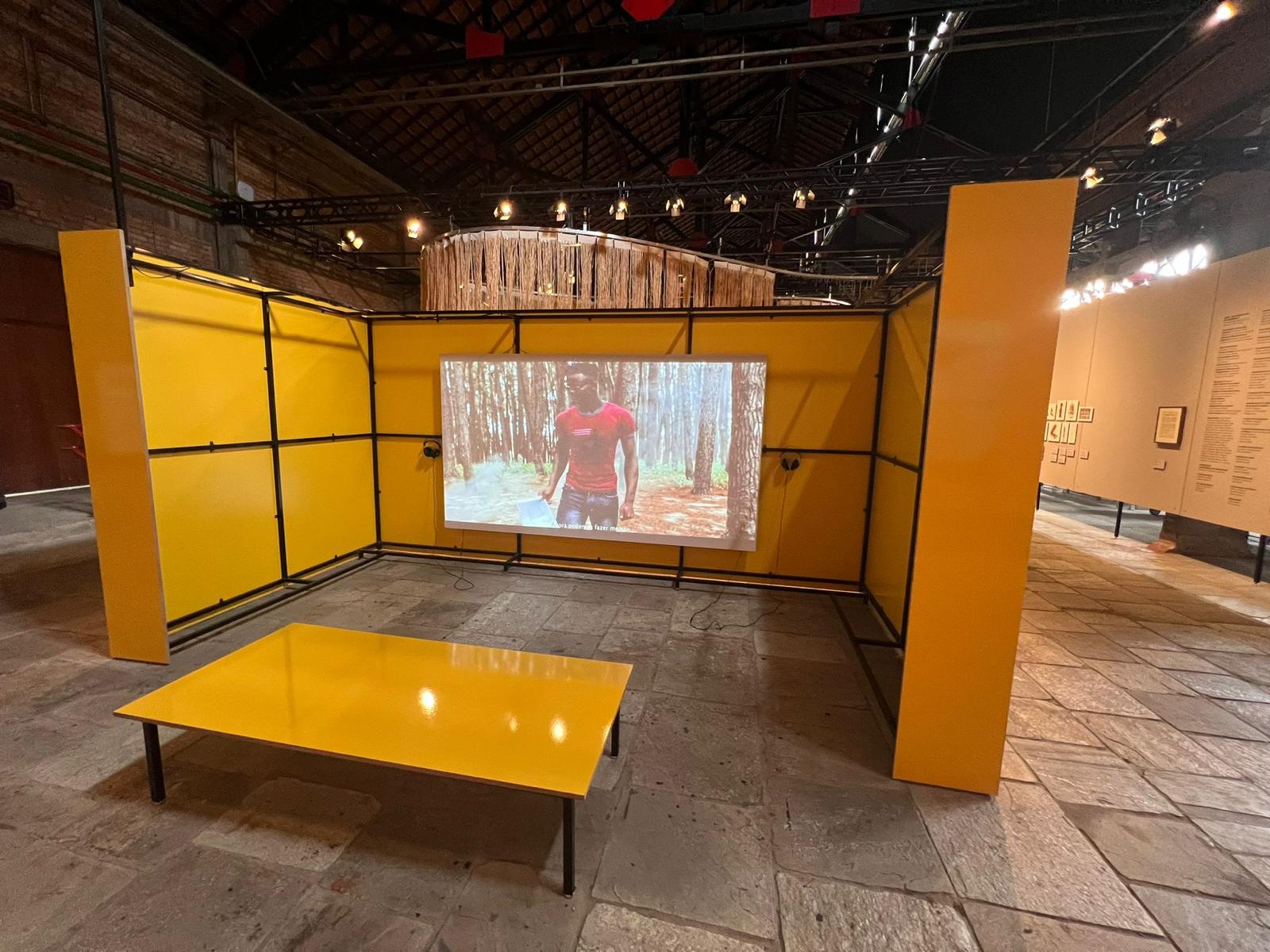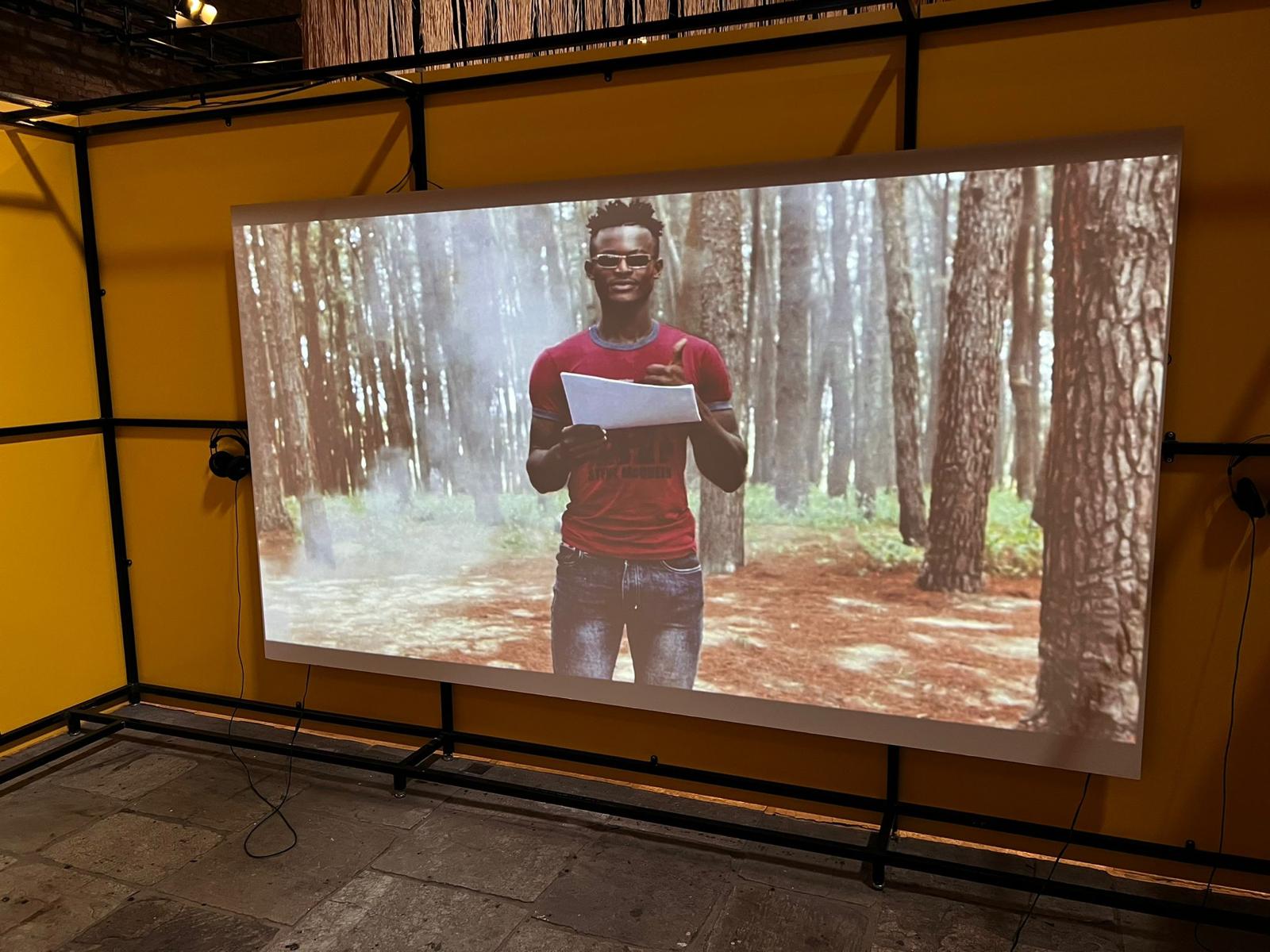KLIMA BIENNALE: WILDERNESS ALLIANCES
17.04.–04.06.2024 at MOTHERBOARD, Vienna, Austria. Artists: Guadalupe Aldrete, Bettina Eigner, Fuzzy Earth, Anita Fuchs, Elena Kristofor, Barbara Marcel, Laura Sperl, Stephanie Winter & Salon Hybri. Curated by Stephanie Winter. Research by Linn Mauerer.
17.04.–04.06.2024 at MOTHERBOARD, Vienna, Austria. Artists: Guadalupe Aldrete, Bettina Eigner, Fuzzy Earth, Anita Fuchs, Elena Kristofor, Barbara Marcel, Laura Sperl, Stephanie Winter & Salon Hybri. Curated by Stephanie Winter. Research by Linn Mauerer.
„WILDERNESS ALLIANCES — Exhibition & Laboratory for Artistic and Performative Research in Interaction with Plants“ is a MOTHERBOARD project that explores the relationship between humans, plants, and other vibrant entities. It is an immersive installation inspired by Hildegard von Bingen's concept of Viriditas - The Greening Power, composed of various plants, seeds, soil, and video works, responding to current environmental challenges. The exhibition creates a space for artists, visitors, and plants to explore diverse relationships within social, ecological, and political structures, encouraging new narratives within our interconnectedness with our home planet.
Barbara Marcel was part of the exhibited artists with the experimental short film THE OPEN FOREST.
Click here for more information on the Klima Biennale Wien and on the exhibition.




THE CHANGE IN PATTERNS
(THE CHANGE IN PATTERNS/ PT I. WATER MINING )
From January 15th 2023, at WildPalms, Düsseldorf, Germany.
Barbara Marcel, Mario Asef, Hans Baumann, Felipe Castelblanco.
(THE CHANGE IN PATTERNS/ PT I. WATER MINING )
From January 15th 2023, at WildPalms, Düsseldorf, Germany.
Barbara Marcel, Mario Asef, Hans Baumann, Felipe Castelblanco.
Climate patterns have changed. We enter in the era of the extraordinary. Every year, every month, another record is broken. While this exhibition is happening, California floodings are at record levels and we experience the warmest winter in Europe. Yes, it is about a way to conceive the climate change that is at our doorsteps, but we constantly forget.
We may not like to think about it, because it is inextricably linked to how we live our lives today.
The basis of our contemporary society is built upon extraction of natural resources in large quantities. For the extraction, water plays an important role. For fracking or to attain lithium, both processes are denominated by water mining.
In Brandenburg, the Tesla factory demands of a large amount of water. Electric cars, new clean energy, thanks to water and drying out the land, an area that is still entangled with the history of dirty energy coal in the region. The abandoned coal mines are pools of an iron mud that contaminates the water.
California has experienced drought conditions in recent years, which has affected the state’s lakes and reservoirs. Low rainfall and high temperatures have led to decreased water levels in many of the state’s lakes and reservoirs, making them less able to provide water for irrigation and drinking water supplies.
Chile and Argentina are home to a number of wetlands, which play important roles in the ecological and economic well-being of the region. These wetlands include marshes, swamps, and peatlands, and are home to a wide variety of plant and animal species.
However, both countries have faced problems with the destruction of wetlands due to human activities such as agriculture and urbanization based on water mining, which has lead to the loss of biodiversity and the destruction of habitats for wildlife.
Water scarcity is a growing concern around the world and has the potential to lead to conflicts, particularly in regions where water resources are limited and populations are increasing. Climate change is also exacerbating the problem by altering precipitation patterns and increasing the risk of droughts. Can we see the water bodies as something universal, away from territorial fights while crossing the ocean with smallest raft that can hold a human being?
We can change the future: especially by being aware that in the past, constantly there was the intent to write our future differently.
- “Wildpalms“
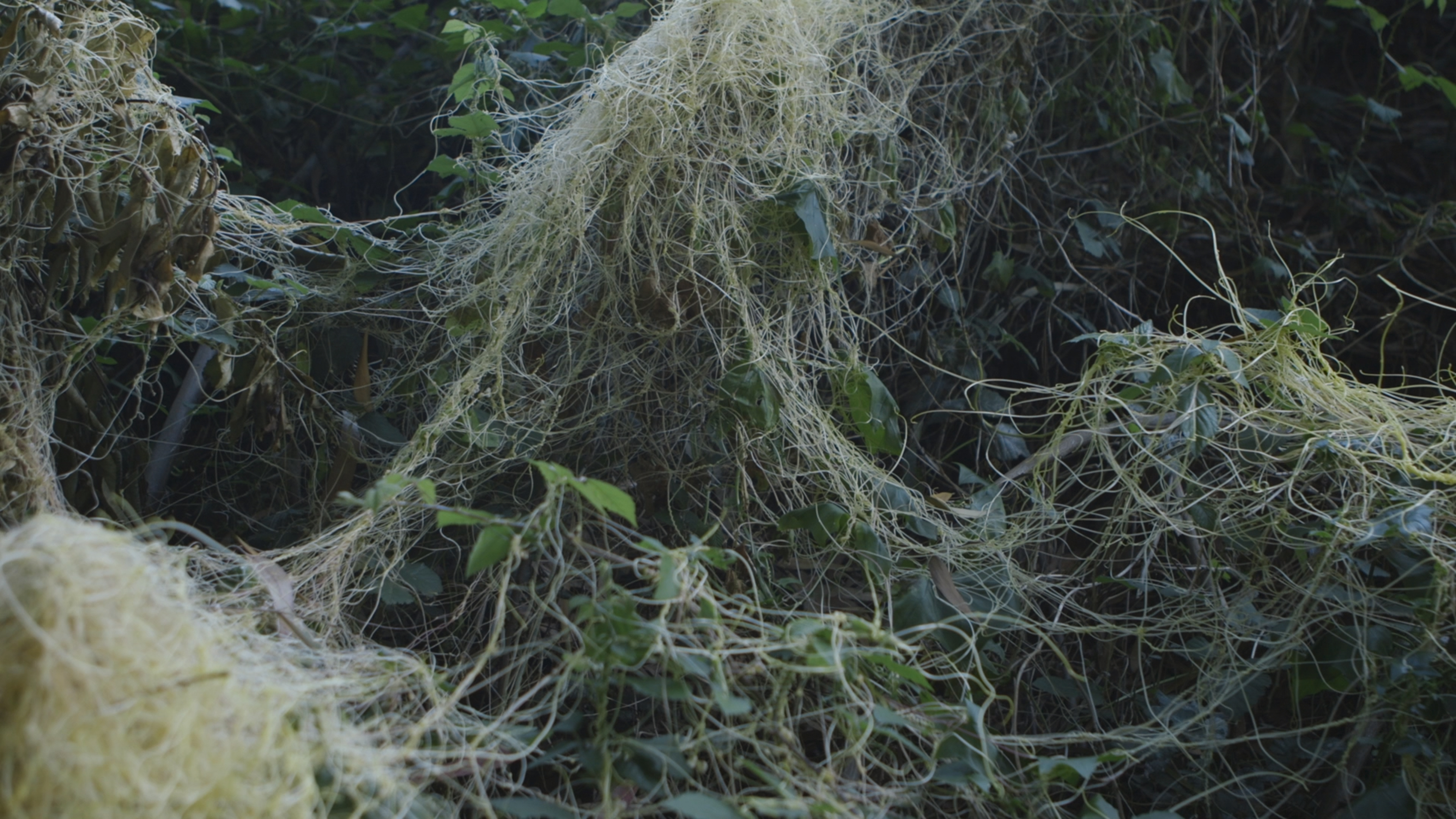
MOTORES DEL CLIMA
06.10.2023 – 18.05.2024, MOTORES DEL CLIMA: Poetics, politics and technologies of the environment. Collective exhibition curated by Daphne Dragona and Jussi Parikka at LABoral - Centro de Arte y Creación Industrial in Gijon, Spain. Artists: Kat Austen, Anca Benera & Arnold Estefan, Felipe Castelblanco, Kent Chan, Denise Ferreira da Silva & Arjuna Neuman, DESIGN EARTH, Matthias Fritsch, Geocinema (Asia Bazdyrieva & Solveig Qu Suess), Abelardo Gil-Fournier, Hypercomf, Lito Kattou, Zissis Kotionis, Pablo de Lillo, Atmospheric Research Collective (Tom Corby, Gavin Baily, Jonathan Mackenzie, Louise Sime, Giles Lane, Erin Dickson, George Roussos), Matterlurgy (Helena Hunter & Mark Peter Wright), Barbara Marcel, Víctor Mazón, Petros Moris, Sybille Neumeyer, Afroditi Psarra & Audrey Briot, Rotor Studio (Ángeles Angulo y Román Torre), Susan Schuppli, Rachel Shearer & Cathy Livermore, Stefania Strouza, Superflux, Paky Vlassopoulou, Thomas Wrede.
06.10.2023 – 18.05.2024, MOTORES DEL CLIMA: Poetics, politics and technologies of the environment. Collective exhibition curated by Daphne Dragona and Jussi Parikka at LABoral - Centro de Arte y Creación Industrial in Gijon, Spain. Artists: Kat Austen, Anca Benera & Arnold Estefan, Felipe Castelblanco, Kent Chan, Denise Ferreira da Silva & Arjuna Neuman, DESIGN EARTH, Matthias Fritsch, Geocinema (Asia Bazdyrieva & Solveig Qu Suess), Abelardo Gil-Fournier, Hypercomf, Lito Kattou, Zissis Kotionis, Pablo de Lillo, Atmospheric Research Collective (Tom Corby, Gavin Baily, Jonathan Mackenzie, Louise Sime, Giles Lane, Erin Dickson, George Roussos), Matterlurgy (Helena Hunter & Mark Peter Wright), Barbara Marcel, Víctor Mazón, Petros Moris, Sybille Neumeyer, Afroditi Psarra & Audrey Briot, Rotor Studio (Ángeles Angulo y Román Torre), Susan Schuppli, Rachel Shearer & Cathy Livermore, Stefania Strouza, Superflux, Paky Vlassopoulou, Thomas Wrede.
The weather is a dynamic system of pressure, temperature and humidity. It manifests through maps, media, and simulations while it touches the skin. Weather is felt unevenly, from extremes to mundane mildness of a breeze. Some are exposed, some are sheltered; weather wears some down, some gain profit.
“Motores del clima” is an art exhibition and a program of talks, performances and workshops taking place at LABoral - Centro de Arte y Creación Industrial in Gijon, Spain. It explores weather as a complex system, as observation and control, and as a lived experience. The projects and events refer to natural phenomena and climate change, past and contemporary strategies of engineering the weather, as well as to different sociopolitical atmospheres related to breathing and living. Approaching the models and systems of art as techniques of knowledge, “Motores del clima” addresses the need for climate justice, and for embracing the surrounding more-than-human world(s).
The exhibition is accompanied by the publication “Words of Weather: A glossary” that maps terms for a political ecology of experience.
Link to the exhibition.
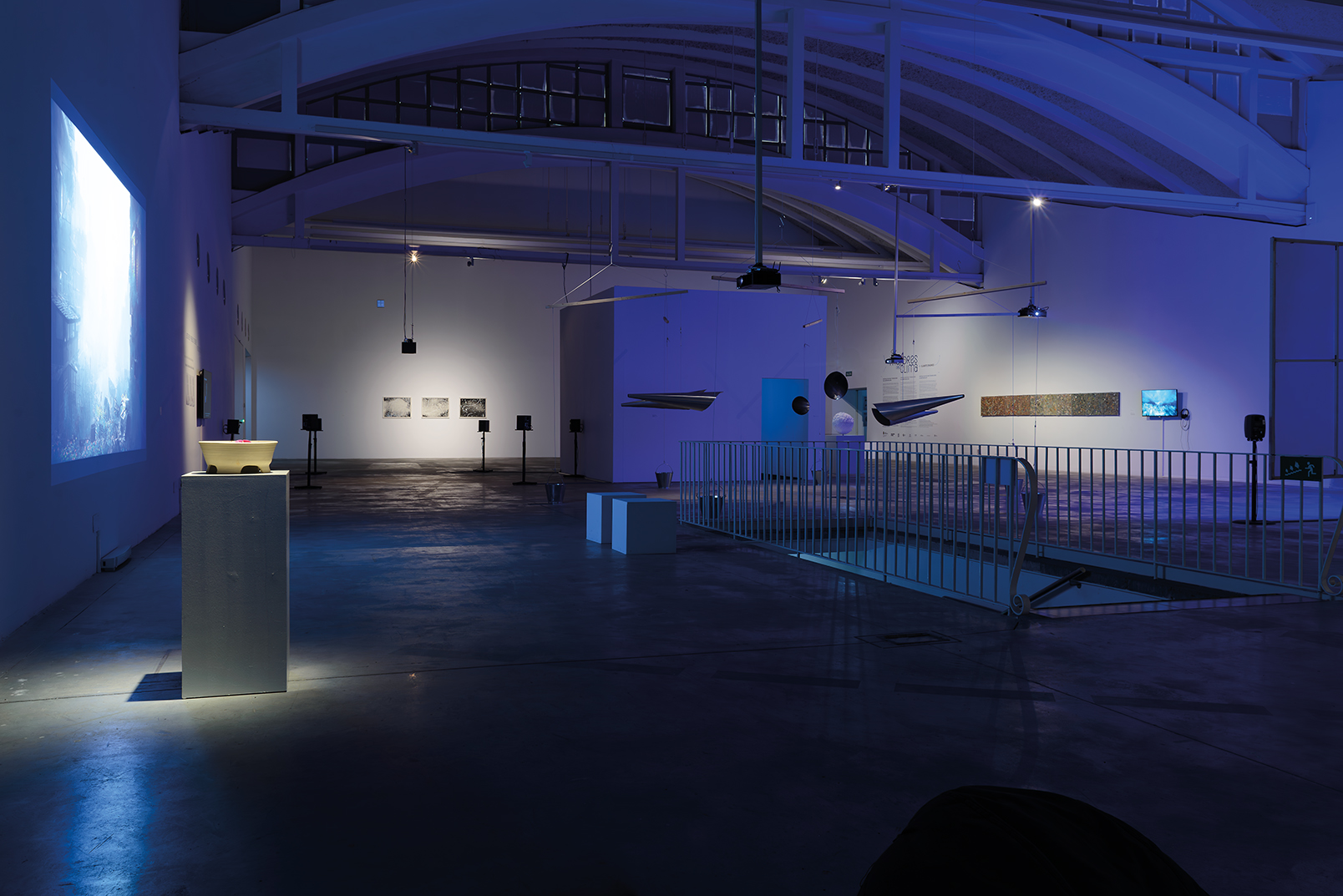



UMBRALES
12.11.2021 - 20.02.2022, Stuttgart
Collective exhibition at ifa Gallery Stuttgart (DE) in collaboration with BIENAL DE ARTES MEDIALES, Santiago de Chile (CHL).
12.11.2021 - 20.02.2022, Stuttgart
Collective exhibition at ifa Gallery Stuttgart (DE) in collaboration with BIENAL DE ARTES MEDIALES, Santiago de Chile (CHL).
Thresholds. How to tie time together?
What should a social order that seeks answers to the pressing issues facing society today look like? Which codes and focal points come together to form the social network of our time? How can art and culture contribute to a better understanding of the effects of human actions on the fragile ecosystem?
Within the scope of 15 bienal de artes mediales (media art biennale) in Santiago de Chile, the exhibition 'Umbrales – Thresholds' explores the transformation, insecurity and vulnerability of societies in times of multiple planetary crises. Being at the threshold means being in an intermediate state, in uncertainty, the unknown and unconscious, and also in a moment of change.
This joint project takes as its starting point the wave of protests against the government in Chile that began in October 2019. The country's deep and interlinked social and ecological crises are made evident. The protests resulted in the constitution of Chile, which still derived from the time of the Pinochet dictatorship, being rewritten – in a participative process that will be completed in 2023. Questions concerning ecological sensitivity, the recognition of a diversity of cultures and languages, gender equality, and the socio-technological nature of living environments are not only relevant in Chile. They all represent themes that require the reorganisation of different social orders around the world.
How to tie time together? – poses the question as to how entering into relationships with one another and finding orientation and contact in space and time. The exhibition sees itself as an invitation to sharpen the senses and sensitivity at a time of insecurity – to observe attentively, to listen and feel, and also to dream, imagine and remember, and to understand oneself as part of a complex constellation of interdependent relationships.
The exhibition is accompanied by an online publication that will accrue over the exhibition period, continuing the gathering of fragments, observations, thoughts, discussions, and shared exploration in a digital space.
The three new multimedia installations by the Chilean artists Elisa Balmaceda (born 1985) and Claudia González (born 1983) and the Brazilian artist Barbara Marcel (born 1985) look at various threshold moments: the protests on the streets in Chile, the landscapes and people exhausted by exploitation and industrialisation, the ruins and remnants of a modernised and accelerated world. A sense of interconnectedness is at the centre of these works, a feeling that makes the entanglements of life tangible. Beginning with these symbiotic nodes, these works explore a myriad of opportunities to create connections by means of and yet also in particular by going beyond human languages. In all of this, different forms of knowledge and old and new technologies intermingle and open up a new understanding of ourselves within the contexts of our lives.
Curators: Bettina Korintenberg, Enrique Rivera
Artists: Elisa Balmaceda with Rodrigo Ríos Zunino, Claudia González Godoy, Barbara Marcel, Elektra Wagenrad
Curator film programme: Florian Wüst
Project coordination and management: Constanza Güell
Exhibition website: https://www.ifa.de/en/exhibit/umbrales
The 15 bienal de artes mediales, Santiago de Chile takes place from 26.11.2021 – 31.03.2022.
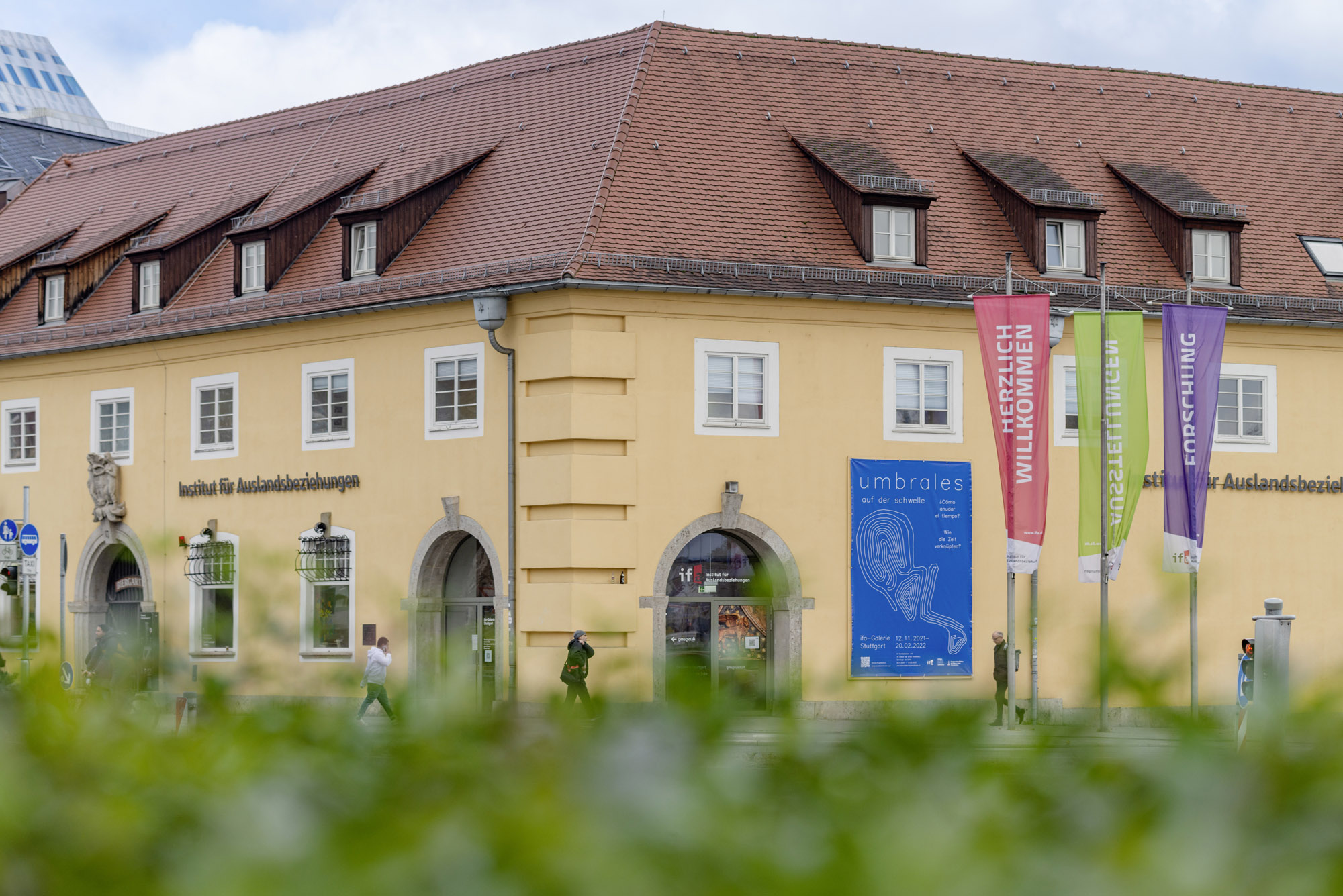


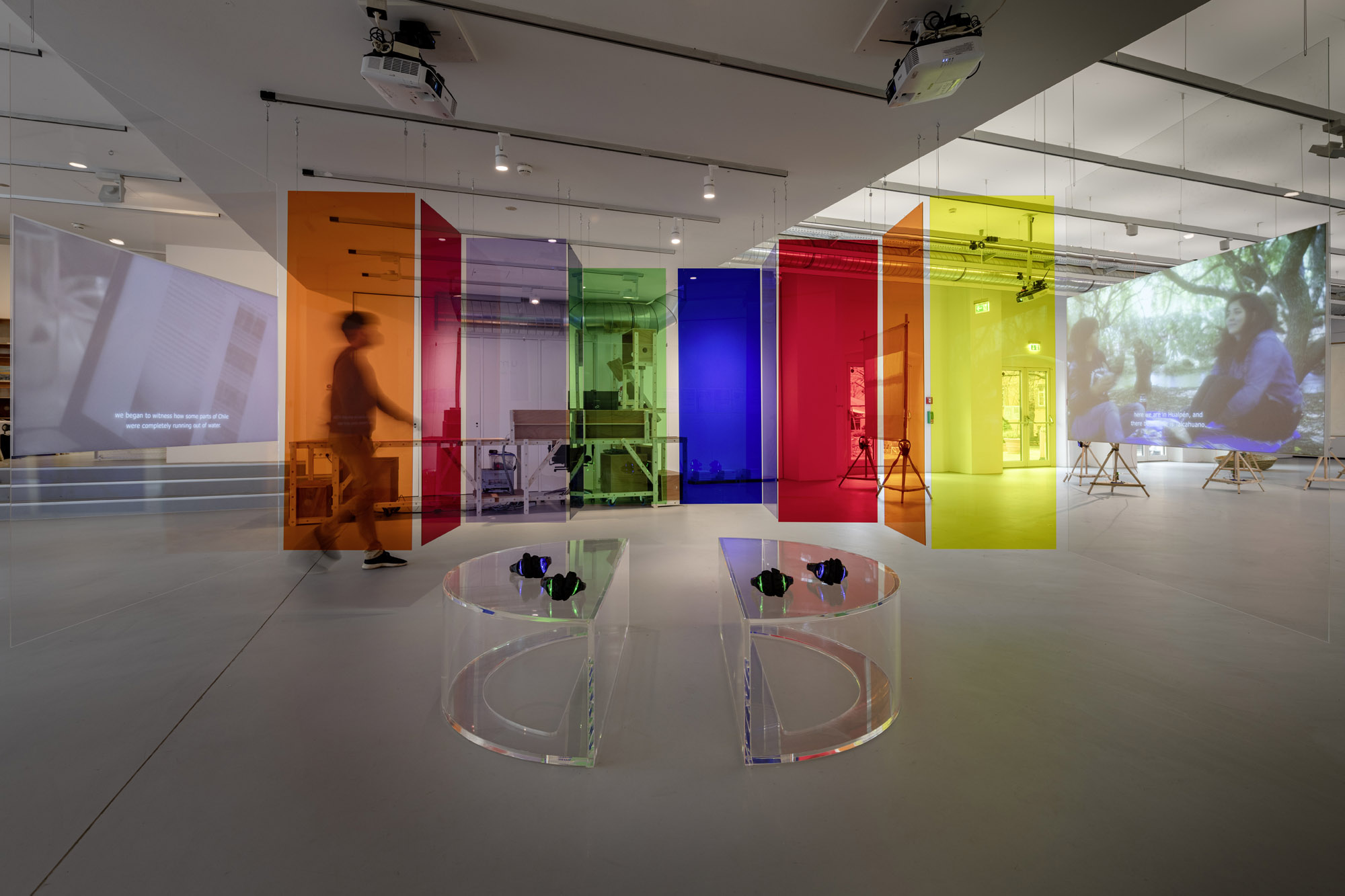
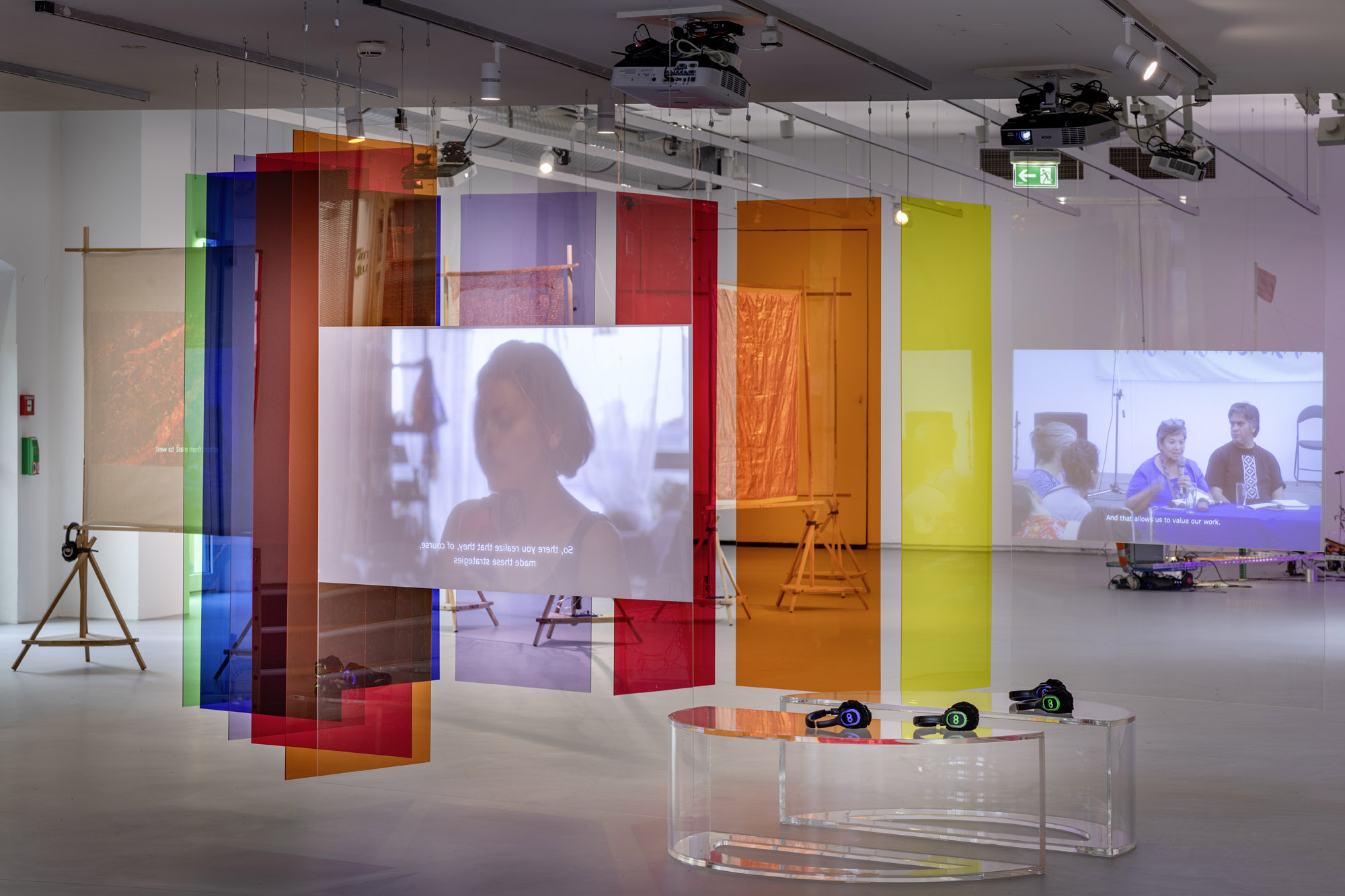
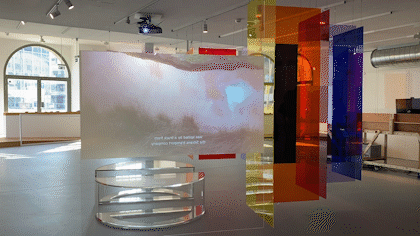
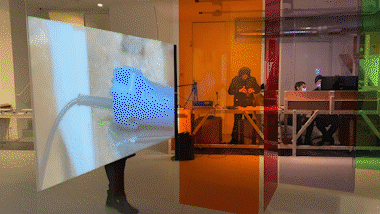
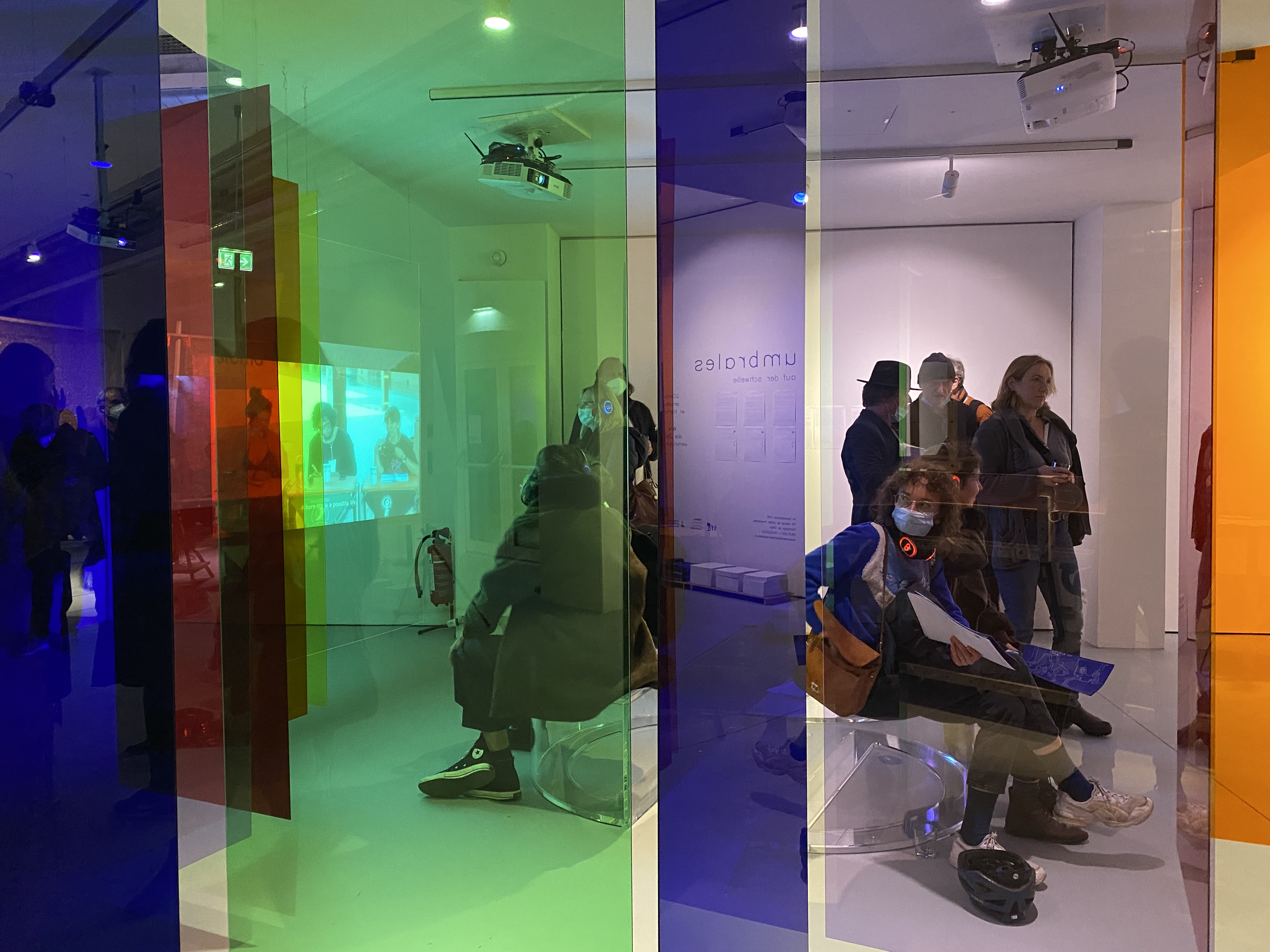
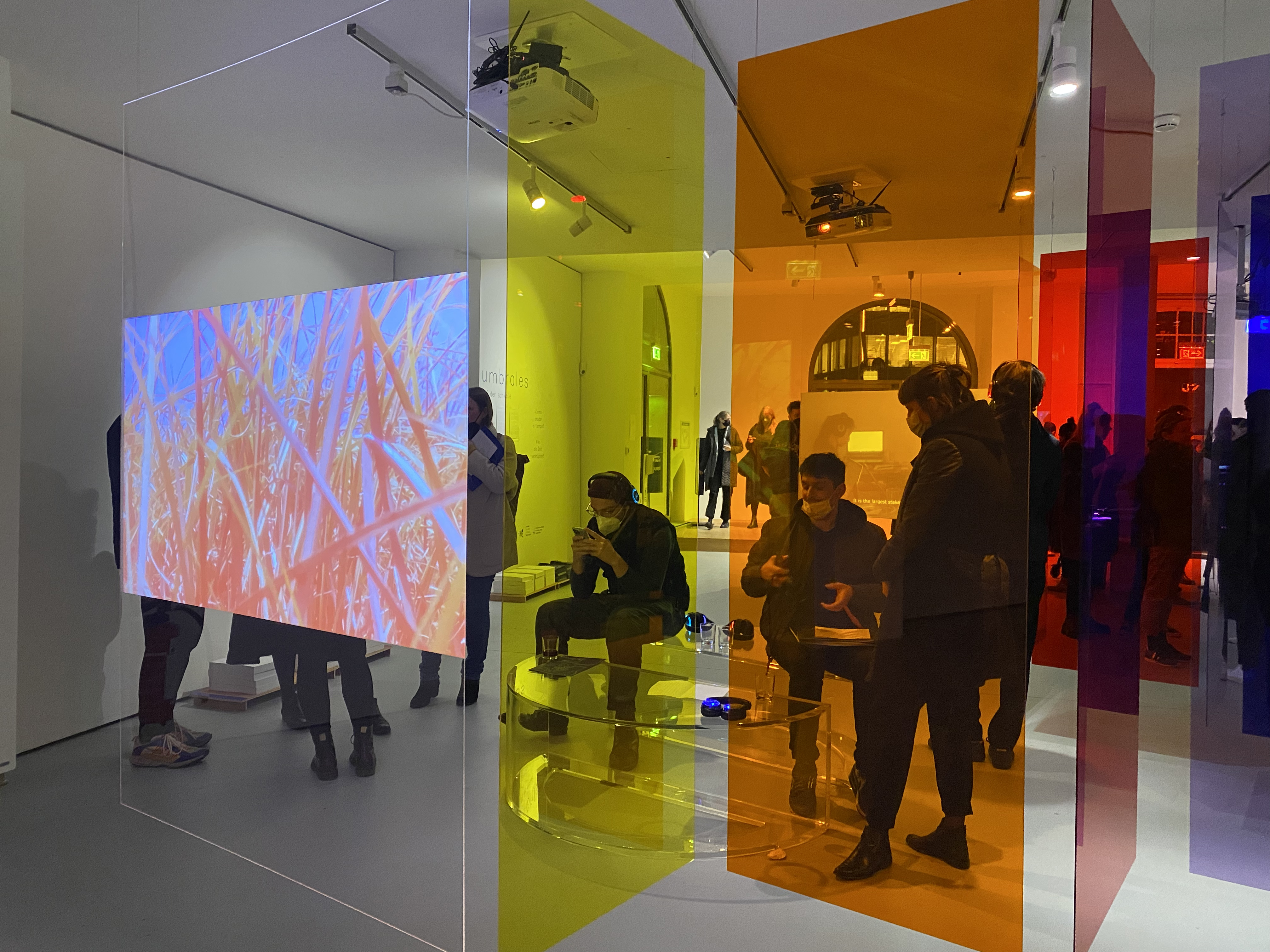

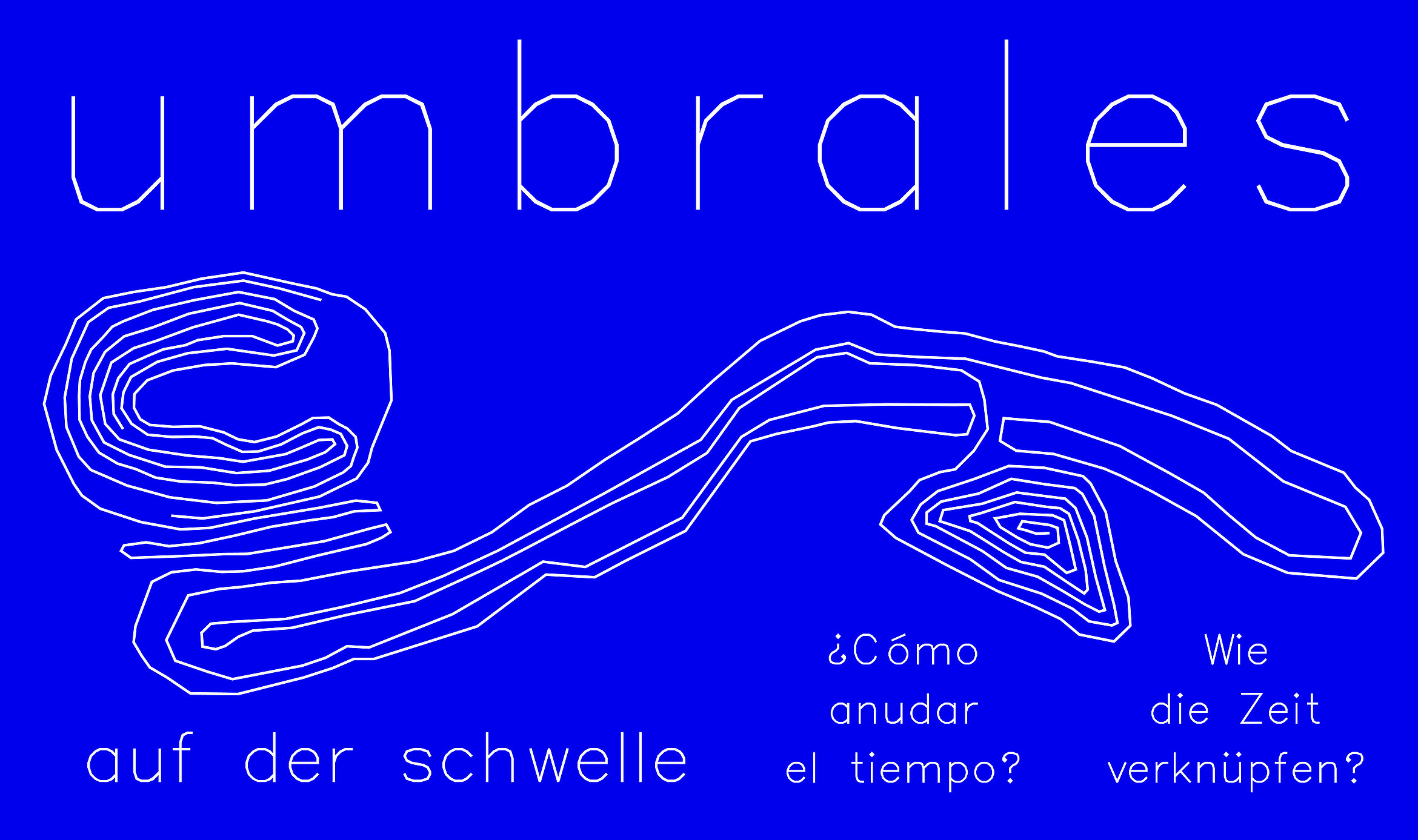
A PARÁBOLA DO PROGRESSO
(THE PARABLE OF PROGRESS)
From 26/10/22 to 02/04/23, Tuesday to Sunday at SESC Pompéia, São Paulo, Brazil.
Curatorial coordination by Lisete Lagnado and assistant curatorship by André Pitol and Yudi Rafael
(THE PARABLE OF PROGRESS)
From 26/10/22 to 02/04/23, Tuesday to Sunday at SESC Pompéia, São Paulo, Brazil.
Curatorial coordination by Lisete Lagnado and assistant curatorship by André Pitol and Yudi Rafael
The exhibition reflects on the country's ideals of modernity and independence, seeking inclusive and diverse projects. With five dialogic territories, the show brings together social forces in welcoming environments for its communities. These five spaces celebrate the 40th anniversary of SESC Pompeia, inaugurated in 1982, which is a stage for culture, leisure, social welfare, and health - qualities and values to be rescued in this moment of global dystopia.
The event also coincides with the bicentennial of Brazil's Independence (1822) and the centennial of the São Paulo Modern Art Week (1922), two historical dates that cut across the conception of the project, part of Sesc São Paulo's "Diverse 22" program. The curatorial coordination is by the critic Lisette Lagnado, with associate curators André Pitol and Yudi Rafael.
Aiming to discuss Lina Bo Bardi's legacy to Sesc Pompeia, one of the city's most vibrant architectural icons, the curators bring other references to add experiential and social layers to the project. Thus, five "dialogic spaces" participate in the exhibition, each with its own singularity: Acervo da Laje (railway suburb of Salvador, BA), Aldeia Kalipety (São Paulo, SP), Casa do Povo (São Paulo, SP), Quilombo Santa Rosa dos Pretos (Itapecuru Mirim, MA), and Savvy Contemporary - the Laboratory of form-ideas (Berlin, Germany).
In opposition to authoritarian and demagogic drifts, different social forces have managed in the meantime to organize themselves and generate spaces of hospitality able to support their community. Knowing how to articulate cultural production within a perspective of care, sensitization and conviviality, these five meeting centers, now implemented within the Sesc Pompeia's Living Space, reinforce its transformation into a "village", amplifying Sesc São Paulo's wish when it invited Lina Bo Bardi and her team to recover the former drum factory: "to build another reality". They operate as conductors of hope within the parable of Positivism, called to illustrate the mythical relationship of this "country of the future", since its colonization and the Afro-Atlantic traffic, through various migratory flows that built the idyllic image of a hospitable nation, a land blessed with exuberant nature, the generosity and emotional expansiveness of a people that would have found its happiness in the mestization of its roots. Known for her appreciation of popular culture, Lina Bo Bardi's work also acquires new inflections today in the wake of decolonial studies attentive to the recognition of different degrees of extractivism and silencing.
